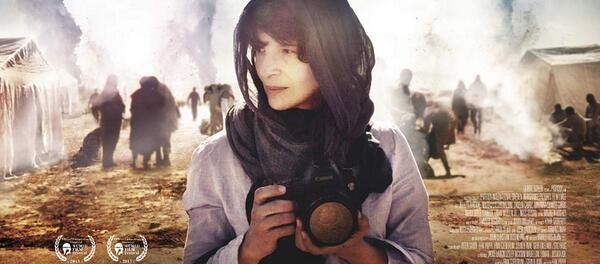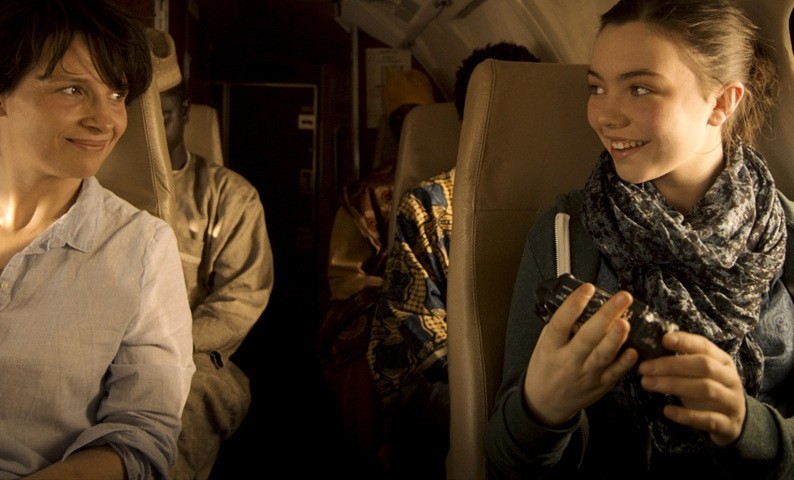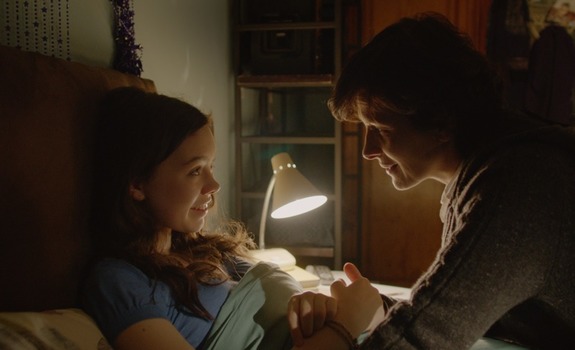1,000 Times Good Night: Choosing between career and family
Rebecca Thomas (Juliette Binoche) is a very famous and successful war photographer who literally will stop at nothing to take a great shot. It all starts with her accompanying a suicide bomber in Kabul. She will get injured in the bombing that’ll cause the deaths of many who didn’t get away in time, despite her warning cries. She will have to return to a family that wasn’t left untouched by her personal career and life choices over the years. The most significant and touching relationship is the one she shares with her eldest daughter, Steph, played by Lauryn Canny. Her character’s maturity is as scarring as her heartbreaking performance and her on-screen chemistry with Binoche, also phenomenal.
Steph is the character that demonstrates the most insight in the needs of both Rebecca and the humanitarian cause at stake, and embodies all her mother’s conflicting realities. She resembles her in the sense that she shares her instincts for what is worth fighting for and is sensitive to injustice. But she also has to pay the ultimate price of being the symbol for all of Rebecca’s heartbreaks and failures in life, as the child whose mother keeps walking out on.
Steph is her own mother’s voice in the end, for Rebecca was never really able to verbalize her feelings quite as eloquently. She did, however, say something that served as a metaphor for her own needs, while explaining to her youngest daughter why she has to let her kitten out. The child voices her concern, saying that “she’s so little, she wouldn’t make it out there by herself!”
Rebecca’s response will be that “cats have nine lives, do you know that?” She obviously identifies as a free and wild being by nature, and one that lives as though they had 9 lives. Her message to her daughter can be interpreted as her cri du coeur, expressing her longing for freedom and her incapacity to function if restrained by the parameters of a well-ordered family life.
- juliette binoche & Lauryn Canny, in 1,000 Times Good Night, 2013.
- juliette binoche & Lauryn Canny, in 1,000 Times Good Night, 2013.
I found that the characterization was clever and that its subtleties already ensured the brilliance of Eric Poppe’s film, making it more genuine and poignant. There were a few scenes in the beginning of the movie that only consisted of endless close-ups, which were rather useless to the narrative, as though they were shot from a photographer’s perspective rather than a filmmaker’s. But assuming that this particular technical “flaw” was not conscious, I’d say that the fact that Poppe is also a press photographer himself, undeniably transpires on screen as well as in the script, and it is definitely a win situation overall, if only for the autobiographical elements he manages to insert in the story.
The conflicting lives of being a war photographer and a wife/mother of two, clearly are tearing this woman and her family apart, as they try to make peace with who she is: a hero and a “drug addict” altogether. Except that in this case, she’s struggling with the very specific addiction that is her job. To take her pictures, she will go as far as to put her own life in danger with none other than her own daughter as witness. She thrives on risk. And while it may seem selfish a behaviour for a mother to put her career first, in this case, it is all but. These are not normal circumstances and hers is not just any career. What drives her isn’t just risk, it is also duty. She feels a sense of responsibility towards war victims and all the suffering that’s in the shadows and needs to be exposed to the rest of the world. It’s a long process of which she happens to be the key element.
As fulfilling as it should be, being a hero comes with its load of obstacles and sacrifices, and what this film teaches us is that they don’t always paint the most glowing picture. Sometimes, they underline one’s most unflattering traits and failures. In A Thousand Times Good Night, our selfless hero is Rebecca Thomas. Yet for much of the film she’s portrayed as a career-centered unfit mother who’s struggling with her addiction. The “true hero” label therefore applies to humans who don’t benefit from any exta-phenomenal power or supernatural force to back them up. They work hard to reach higher goals than the average. But that also implies that they are not infallible.
Rebecca’s daughter will be the key that opens the last door that was locked, telling her that she can be what she is meant to be without holding back. Yes, she is afraid for her mother, but she understands that the impact of her work on a large scale is worth it. Only then does the filmmakers’ position become clear: Rebecca’s work is relevant and needed in this world, and war photographers’ humanitarian contribution is essential. But we must remind ourselves not only of the challenges they face professionally, but also that the pain that comes along their journey is one of great intensity and extends to every single member of the family they leave behind, in the arms of constant fear.
One understands and appreciates soon enough that the documentary aspect is rather about the life and family struggles of a war photographer than of the war itself, and it was never explored or delivered as sensibly before!
TVA Films and Pacific Northwest Pictures released the French version of the film on August 4, which is now available in VOD, DVD and on itunes









